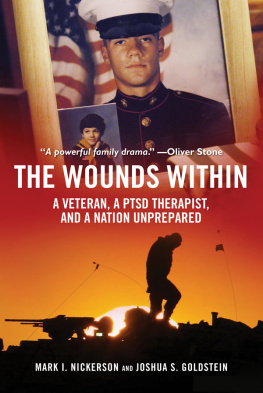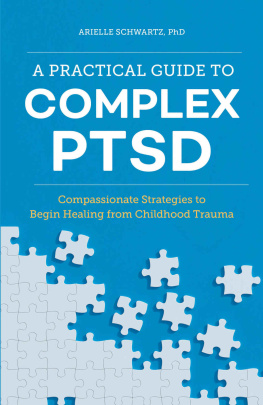Copyright 2015 by Mark I. Nickerson and Joshua S. Goldstein
All rights reserved. No part of this book may be reproduced in any manner without the express written consent of the publisher, except in the case of brief excerpts in critical reviews or articles. All inquiries should be addressed to Skyhorse Publishing, 307 West 36th Street, 11th Floor, New York, NY 10018.
Skyhorse Publishing books may be purchased in bulk at special discounts for sales promotion, corporate gifts, fund-raising, or educational purposes. Special editions can also be created to specifications. For details, contact the Special Sales Department, Skyhorse Publishing, 307 West 36th Street, 11th Floor, New York, NY 10018 or .
Skyhorse and Skyhorse Publishing are registered trademarks of Skyhorse Publishing, Inc., a Delaware corporation.
Visit our website at www.skyhorsepublishing.com.
10 9 8 7 6 5 4 3 2 1
Library of Congress Cataloging-in-Publication Data is available on file.
Cover design by Brian Peterson
Cover photo credit AP Images
Print ISBN: 978-1-63220-419-6
Ebook ISBN: 978-1-63220-420-2
Printed in the United States of America
TO THE LUCEY FAMILY
CONTENTS
chapter 1
SAFE BUT NOT SOUNDRETURNING FROM WAR
JULY 14, 2003, was a beautiful, sunny day in New Haven, Connecticut. Down by the beach on Long Island Sound, hundreds of people filled a large parking lot at old Fort Nathan Hale, a colonial-era fort that had fallen into disrepair over the decades, found new life as a small museum, and now also served as a base for the U.S. Marine Corps Reserve and the Army National Guard.
The crowd had come to meet the members of the Marine Reserve 6th Motor Transport Battalion, Light Company, returning from Iraq. Many waved American flags and flags with the USMC logo in gold against a maroon background. Many carried balloons. Most were dressed informally, in shorts and skirts, tank tops and T-shirts. The colors sparkled in the sunshine.
One Mylar balloon with red and white stripes said simply, W ELCOME H OME . One mans hat was made of red, white, and blue balloons that rose two feet above his head. A womans top was fashioned like the American flag. Stars sat on her right shoulder; red and white stripes extended down her left side. A young child sat on her fathers shoulder to get a better view. Every family seemed to have a camera, and many videotaped the festivities.
THE REUNION
The scene was reminiscent of the old Civil War song, When Johnny Comes Marching Home Again, written by conductor Patrick Gilmore for his sister Annie to comfort her while her fianc was away with the Union Army. The men will cheer and the boys will shout; the ladies they will all turn out. It is a timeless scene, repeated after most of Americas wars. Since that day in New Haven early in the Iraq War, it has been repeated countless more times as two and a half million Americans have returned from Iraq and Afghanistan.
At these homecomings, a feeling of hopefulness and relief enlivens the air. The civilians desperately want to believe that all is well, that order is restored. They want to fill with joy the warriors heart, as the song says, and to put war firmly behind them. But often the warriors themselves harbor ambivalence about such celebrations. While away, they have craved this homecoming and imagined it a certain way, yet when it actually happens, it feels different. In war they have seen, and perhaps done, terrible thingsthings that the happy men and ladies of the iconic song might never understand and, worse, might not really want to know about. Yes, the vets are home, but likely as not they have changed. The faces of their parents, siblings, lovers, and friends are familiar, but will these people understand or connect with the veterans? On the outside, of course, the returning heroes are all strength and smiles.
On that July day in New Haven, one particular family waited expectantly for their Johnny. Their guy was Lance Corporal Jeffrey Lucey. His parents, Joyce and Kevin, were there to greet him, along with his sisters Debbie and Kelly, his girlfriend Julie, and family friends. Jeffs mother, Joyce, still recovering from a stroke she suffered while Jeff was away, was tired but eager. She had birthed this boy, raised him, seen him off to war, and couldnt wait to get him back. As the arrival was delayed, the family paced around the parking lot, looking at the ocean and waiting.
Jeffs father, Kevin, looked around and remembered how different the mood had felt the last time they were there. It had been a night of gloom and fear as Jeffs unit had slipped into the darkness at 4:00 AM to an uncertain war in a distant land. On this summer day, however, the moment was festive and bright. People laughed and chatted with glee, making instant friends with those around them.
The suspense continued as the buses were late. Word came that they had missed the exit but had turned around and were on their way back. Amidst the excitement, Kevin peered over the ocean and thought, My God, everything looks so wonderful, peaceful, and beautiful. The world is coming back to us again.
Finally, there was a stirring in the crowd. The faint sound of sirens grew louder until everyone saw the police escort turn in with its lights flashing and sirens trumpeting. Then the first glimpse of the buses sparked a wave of excitement. The buses slowly pushed alongside the crowd, but the mob wouldnt allow them to go any further, and the Marines hurriedly disembarked. The crowd surged forward, clapping, cheering, and yelling. Everyone was looking for their Marine, and the Luceys found theirs.
Jeff looked greattan, slender, smiling. He seemed surprised that so many people had come. Jeff said later that none of the Marines had expected the welcome home and the greeting that they received. Jeff was dressed in Marine fatigue camos, mostly sand-colored with swooshes of brown and green. L UCEY was printed on his right pocket and US M ARINES on his left.
Jeffs girlfriend, Julie, carried an American flag and a bouquet of yellow and red flowers. They embraced, kissed, and then just gazed at each other, their noses touching, with the brim of Jeffs hat resting on Julies head.
Kevin had been video recording the greetings. Now it was his turn, and he passed off the camera to his wife. Father and son embraced each other heartily. Jeff leaned his chin into his fathers shoulder, holding on with his right hand squarely on his fathers back. For several seconds, Kevin held his son firmly with both arms, his chin over Jeffs shoulder. Kevin was overwhelmed with joy and relief. He choked up as he whispered, Welcome home, Jeff. Thank God, you are safe and sound.
A CALL FOR HELP
Nine months later, on April 29, 2004, I received a voicemail message at my psychotherapy practice, in the town of Amherst in western Massachusetts. I had been providing individual and family therapy in the community for many years and had helped many people address a broad range of issues that cause people to seek therapy.
The voicemail was from Joyce Lucey. I think you probably remember my son, Jeffrey. You saw him when he was a teenager, it began. Were wondering if you would be willing to see Jeffrey. Hes really not doing very well, and he wont talk about it, but I think hes willing to see you. Jeff was living with his parents in the small town of Belchertown, Massachusetts, next to Amherst.
Joyce went on to explain that Jeff had served in Iraq, and on his return he seemed OK but had gotten worse and worse over the last few months. She and Kevin were really worried about him. But they couldnt convince him to talk to anybody connected to the military. He was afraid it would only make his life worse if anyone in the military found out how much he was struggling.










